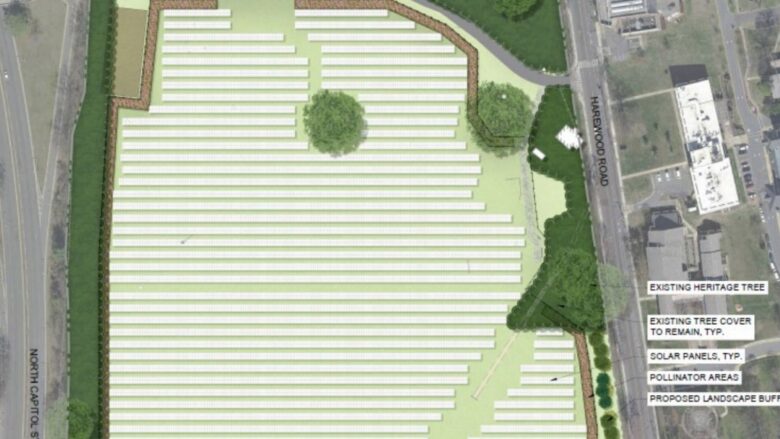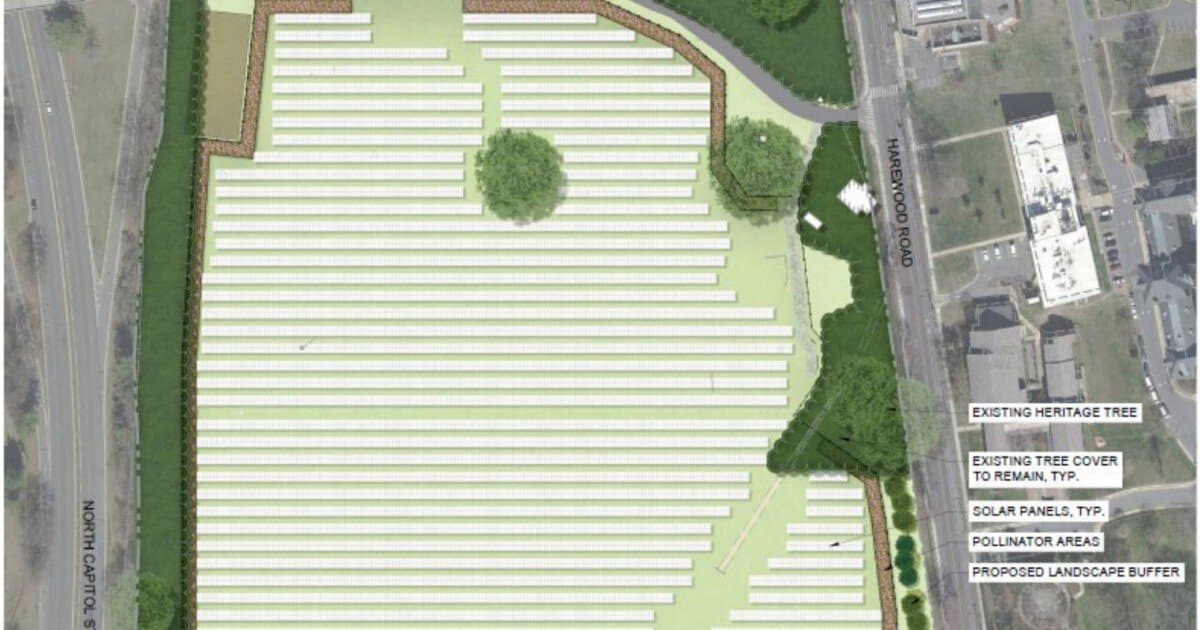
In 2021, the Catholic University of America (CUA) committed to creating the largest solar array in Washington DC, a plan that today includes an apiary managed by Baltimore beekeeper Rob Yochem and his partner, DC beekeeper Emily Locke! Both are MSBA and DCBA members.
This location is an urban paradise for both bees and beekeepers. The site hosts acres of native pollinator plantings and a tree canopy restoration project managed by Casey Trees, as well as natural streams and an existing forest area. The array was dedicated June 3, and serves as a model of sustainability in the District and the region.
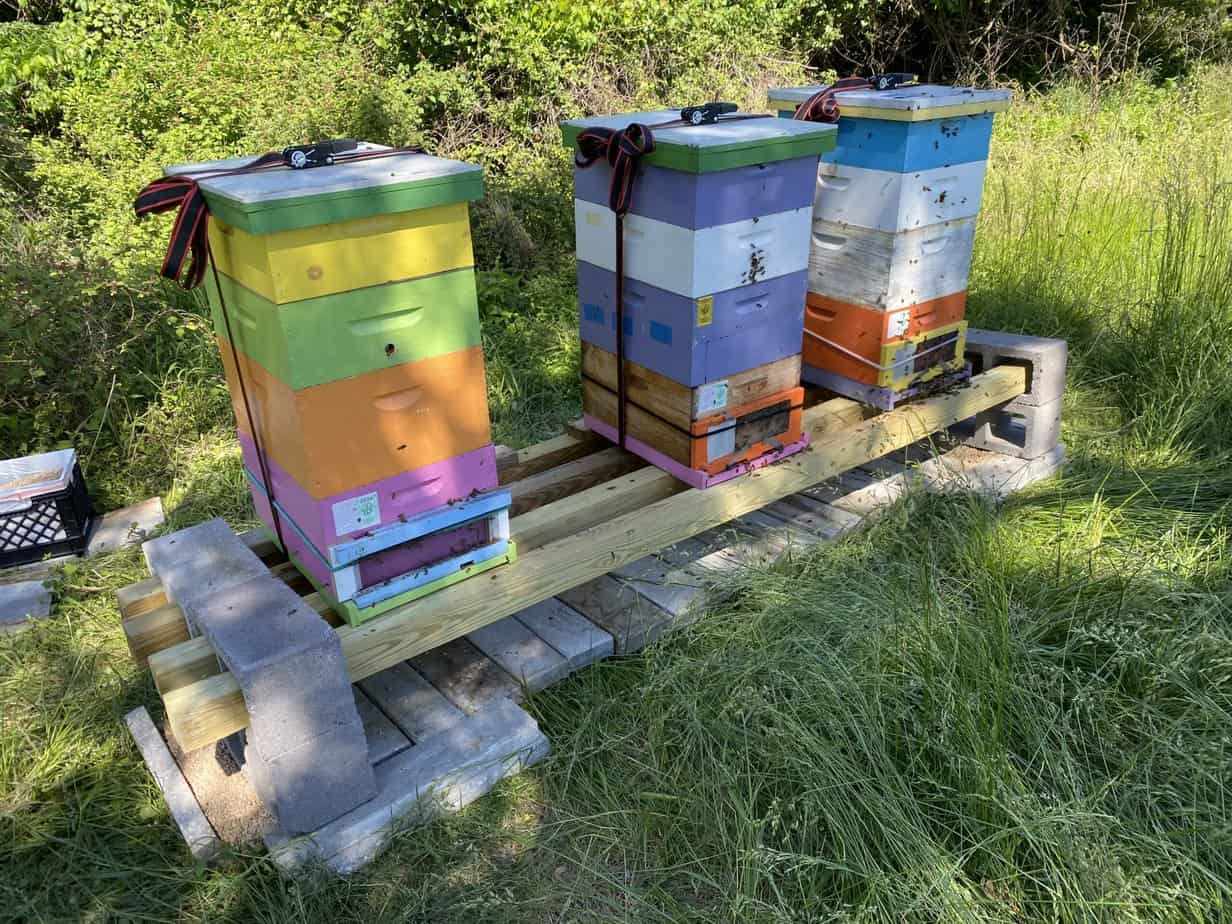
Rob and Emily moved three colonies of their own onsite in mid-May and will work with CUA to set up more of the university's own colonies in 2025.
As solar arrays are established across our region, the successful development of beekeeper participation at CUA may provide a model, or a point of comparison, for other beekeeping opportunities in the future.
Catholic University had several pre-existing ties to the local beekeeping community. The engineering department had previously worked with MSBA member and EAS Master Beekeeper Frank Linton on a student bee monitoring project, and the lead professor, Gregory Behrmann, ended up becoming a beekeeper himself. CUA hosted an intermediate case study class for the DC Beekeepers several years ago, and CUA students often volunteer at the nearby Franciscan Monastery Garden Guild Farm where DCBA has a major apiary.
These established institutional relationships were critical in navigating the many steps to assure both the host and the onsite beekeepers that the apiary could function in a healthy, sustainable way, and to yield benefits for all parties. DCBA had been able to establish large offsite apiaries with public utilities, embassies, office buildings, cemeteries, and other locations in the city, and had contract examples (and lessons learned) on hand to help guide project development. The university was also more comfortable working through an incorporated 501(c)3 nonprofit, with issues like insurance, training, regulatory requirements, and access to subject matter experts covered. Maryland clubs that are aware of nearby solar farm development projects can be critical allies in expanding access to these areas for their members.
After Catholic University's Office of Sustainability reached out seeking help from DCBA to establish an apiary, several rounds of discussion and preparation took place. DCBA asked CUA to recruit interested staff and students to take the annual beginners course in Winter 2023-4, and three students completed all requirements.
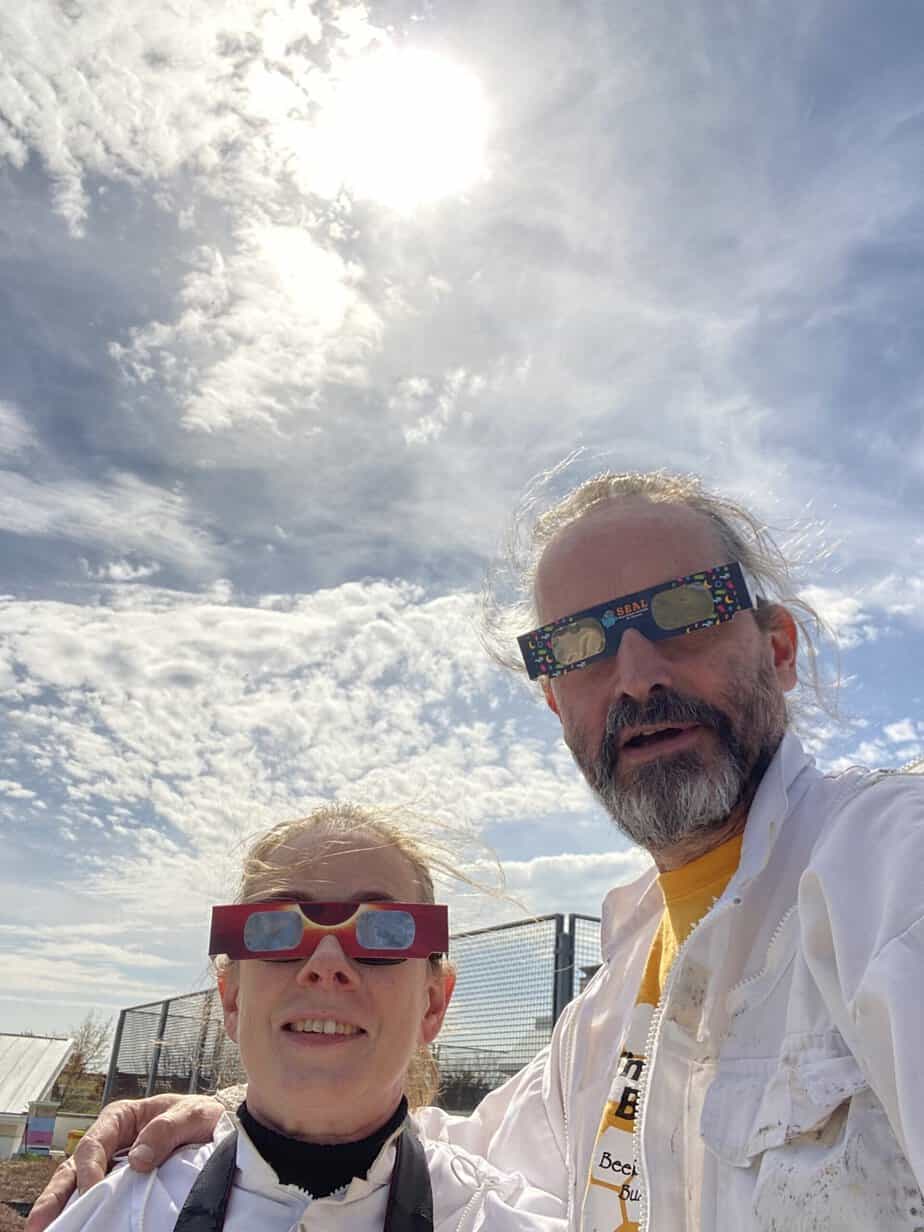
Before construction took place, Rob, Emily, and Greg Osband, a landscape architect with the Office of Sustainability, walked the site. So many questions affecting the long term maintainability of an out apiary only become clear by feet on the ground, and several key needs and preparations came to light right away. It was important to put the colonies where they would not interfere with site function or mechanicals, where they would have access to water and sun, to stay away from nearby public sidewalks or walkways, and to not be obviously visible to pedestrians outside the property. Because the project was in early days, it was also possible to request both water and power near the proposed apiary site, as well as vehicle access.
DCBA tagged along, and offered insights on how to build ownership of the project within the CUA community, as well as potential student-led future projects that would effectively care for the bees and produce resources for the school. For example, engaging the students from the beginning in fundraising, deciding on equipment and stocks of bees, and fundraising to achieve their goals are often better for the bees and the longevity of the project than providing all of the start up resources in advance. Before that, giving CUA community members a chance to engage with the beekeeper-owned colonies onsite is incredibly valuable hands-on experience: something that is very much in demand by newbies, but often hard to provide.
CUA also negotiated with Rob and Emily about issues including shares of harvest and continuing outreach to the university community (both students and staff) such as workshops and talks. It is absolutely critical to look at projects like this as investments in sustainability from which the host community can get both tangible and intangible benefit! Projects like this often start small, with a small number of colonies. Over time, trust and experience can lead to growth and even more creative and productive bee project ideas – a collaboration that is greater than the sum of its parts!
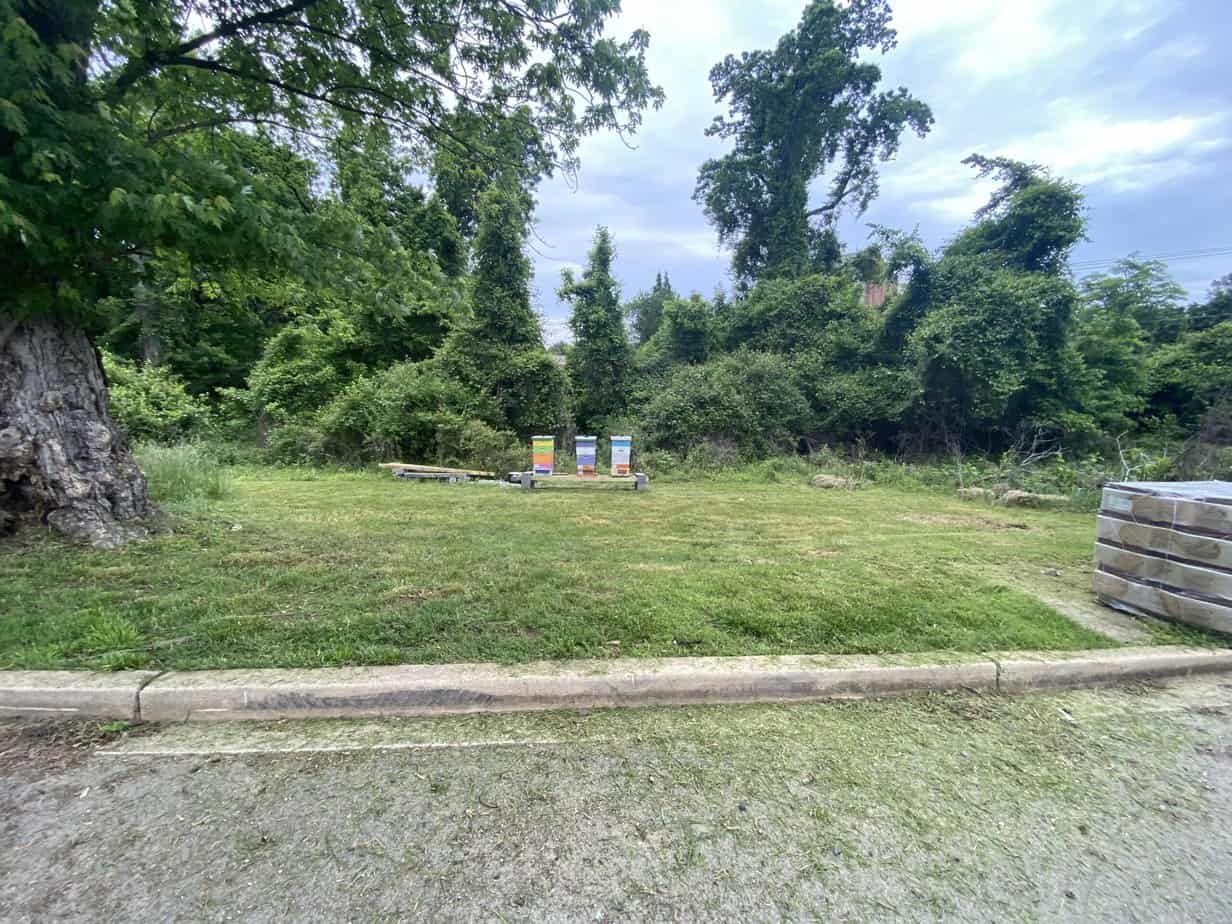
[Return to June 2024 BeeLine newsletter]

